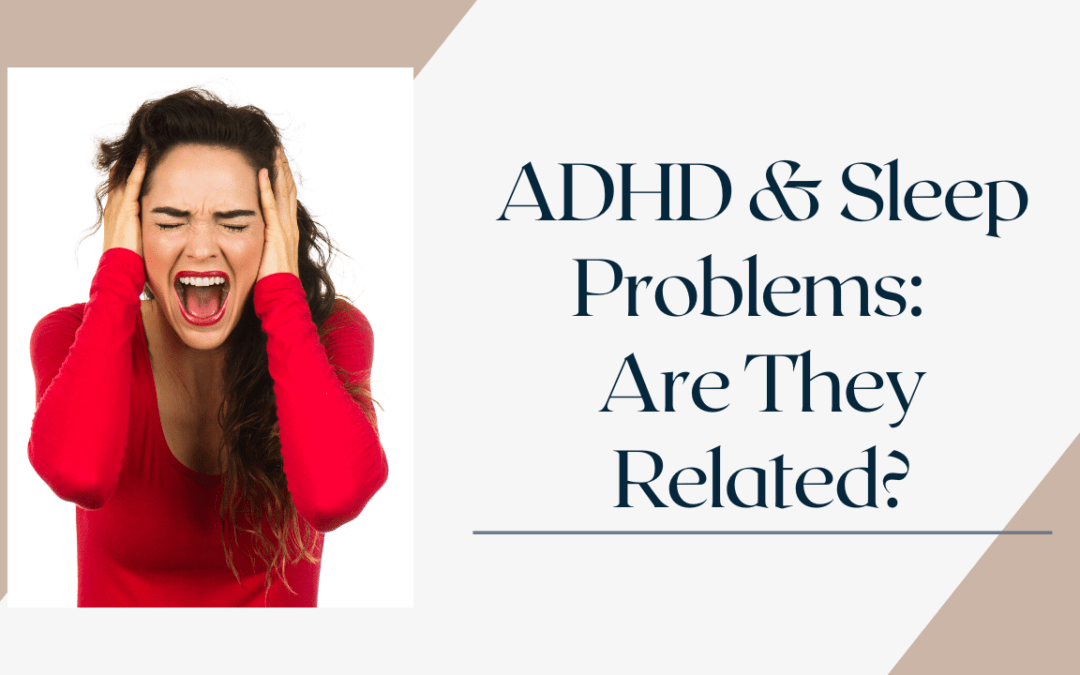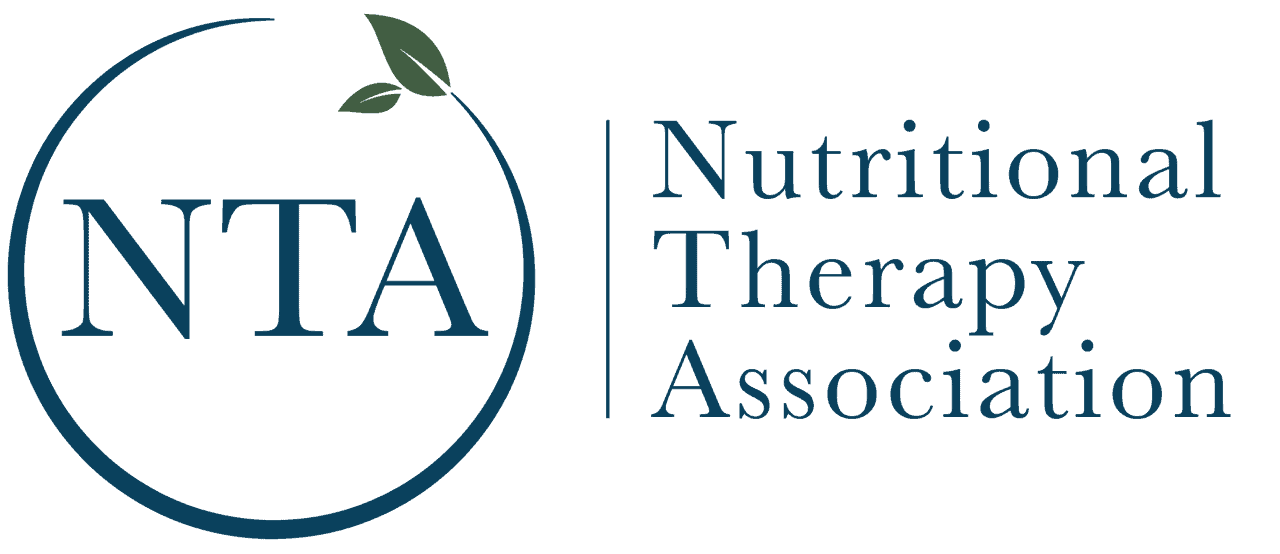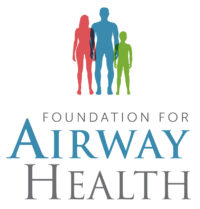ADHD & Sleep Problems: Are They Related?
I’ve been practicing myofunctional therapy for years, and have worked with many clients with sleep disorders. Recently, I was wrapping up a two year therapy stint with a client who was giving me feedback about his improved sleep. His story had an interesting twist, that was the impetus this article.
Over the two year journey, this client had undergone MARPE (Miniscrew Assisted Rapid Palatal Expansion), frenectomy and myofunctional therapy. He had been diagnosed with sleep apnea prior to beginning myofunctional therapy. Over the course of his treatment, his sleep had improved but at some point the improvement plateaued.
My client kept digging for sleep solutions and was surprised to find something his doctor hadn’t considered, right on the Sleepfoundation.org website.
A connection between ADHD and sleep.
With the help of his sleep physician, my client found that he did have ADHD and was treated with a non-stimulant medication that was working wonderfully. He feels like he had found one more missing piece to the “quality sleep puzzle”.
For that reason, in this blog I’m taking a deeper dive into ADHD and sleep problems to see if they are related.
Overview: ADHD and Its Common Symptoms
Attention Deficit Hyperactivity Disorder (ADHD) is a neurodevelopmental condition affecting millions of children and adults globally. It’s characterized by patterns of inattention, hyperactivity, and impulsivity, significantly impacting daily life and quality of life. People with ADHD often struggle with organizing tasks, maintaining focus, and controlling impulsive behaviors, leading to challenges in school, work, and social settings.
Common Symptoms and Behaviors
ADHD symptoms can vary significantly but generally include a mix of inattention, hyperactivity, and impulsivity. Common behaviors associated with ADHD include:
- Easily distracted by external stimuli
- Difficulty following instructions and completing tasks
- Frequent loss of personal items
- Constant movement and inability to stay still
- Interrupting conversations or activities
- Acting without thinking about consequences
Recognizing and diagnosing ADHD requires a comprehensive evaluation, as symptoms can vary widely among individuals. Early identification and intervention are crucial for effective management.
Introduction to the Idea that ADHD and Sleep Problems May Be Interconnected
While ADHD is often linked to cognitive and behavioral challenges, there’s growing recognition of the link between ADHD and sleep problems. Many individuals with ADHD report difficulties falling asleep, staying asleep, or experiencing restful sleep. These sleep disturbances can worsen ADHD symptoms, creating a cycle of poor sleep and increased inattention, hyperactivity, and impulsivity.
Research suggests that the relationship between ADHD and sleep problems is bidirectional. ADHD-related hyperactivity and racing thoughts can interfere with the ability to wind down and fall asleep. Conversely, inadequate sleep can impair cognitive function and self-regulation, intensifying ADHD symptoms.
Understanding and addressing the connection between ADHD and sleep problems is essential for improving overall well-being. By exploring strategies and therapies that target both ADHD and sleep issues, individuals can better manage their symptoms and enhance their quality of life.
Types of ADHD
ADHD is categorized into three primary types based on the predominant symptoms:
Inattentive Type: Symptoms include:
- Difficulty sustaining attention in tasks or play activities
- Frequent mistakes due to overlooking details
- Trouble organizing tasks and activities
- Avoidance or dislike of tasks requiring sustained mental effort
- Forgetfulness in daily activities
Hyperactive-Impulsive Type: Symptoms include:
- Fidgeting with or tapping hands and feet
- Inability to stay seated in situations where it is expected
- Running or climbing in inappropriate situations
- Inability to play or engage in activities quietly
- Excessive talking and interrupting others
- Difficulty waiting for one’s turn
Combined Type: A combination of inattentive and hyperactive-impulsive symptoms. This is the most common form of ADHD.
Prevalence of ADHD in Children and Adults
ADHD is one of the most common neurodevelopmental disorders, affecting approximately 5-10% of children and about 2-5% of adults worldwide. Boys are more likely to be diagnosed with ADHD than girls, though this may be partly due to differences in symptom presentation. In adulthood, the gender gap narrows as more women are recognized and diagnosed with ADHD.
Impact of ADHD on Daily Life and Overall Health
The impact of ADHD on daily life can be profound. In children, ADHD can lead to academic challenges, social difficulties, and strained family relationships. In adults, ADHD may affect job performance, relationships, and self-esteem. The constant struggle to manage symptoms can lead to frustration, anxiety, and even depression.
ADHD can also have significant health implications. Individuals with ADHD are more prone to injuries due to impulsive behavior and are at higher risk for co-occurring conditions such as anxiety disorders, depression, and substance abuse. Additionally, sleep problems are common among those with ADHD, further complicating symptom management and overall well-being.
Understanding ADHD and its wide-ranging effects is crucial for developing effective strategies to support individuals with this condition. By recognizing the signs and seeking appropriate interventions, those with ADHD can improve their functioning and enhance their quality of life.
Sleep Problems Commonly Associated with ADHD
Types of Sleep Problems Often Reported in Individuals with ADHD
Individuals with ADHD frequently experience a range of sleep problems. These sleep disturbances can exacerbate ADHD symptoms and negatively impact overall well-being. Common sleep problems in individuals with ADHD include:
- Insomnia: Difficulty falling asleep, staying asleep, or waking up too early and being unable to go back to sleep.
- Delayed Sleep Phase Syndrome (DSPS): A sleep disorder where the individual’s sleep-wake cycle is delayed by two or more hours beyond the conventional bedtime, leading to difficulty waking up at a desired time.
- Restless Legs Syndrome (RLS): A condition characterized by an uncontrollable urge to move the legs, usually due to uncomfortable sensations, interfering with the ability to fall and stay asleep.
- Sleep Apnea: A serious sleep disorder in which breathing repeatedly stops and starts, leading to poor sleep quality and daytime fatigue.
How These Sleep Problems Manifest in Individuals with ADHD
In individuals with ADHD, sleep problems can manifest in various ways:
- Difficulty Falling Asleep: Many people with ADHD find it hard to wind down at night due to racing thoughts and hyperactivity, leading to prolonged sleep onset latency.
- Frequent Night Awakenings: Disruptions in sleep are common, resulting in fragmented sleep patterns and inadequate rest.
- Daytime Sleepiness: Poor sleep quality often leads to excessive daytime sleepiness, making it challenging to focus and stay alert during the day.
- Behavioral Issues: Sleep deprivation can exacerbate ADHD symptoms, leading to increased irritability, hyperactivity, and impulsivity.
The Connection Between ADHD and Sleep Problems
Biological and Neurological Explanations for the Link
The relationship between ADHD and sleep problems is complex, involving a combination of biological, neurological, and behavioral factors. Research has identified several key mechanisms that may explain this connection:
Brain Structure and Function
Studies using neuroimaging techniques have revealed differences in the brain structure and function of individuals with ADHD compared to those without the disorder. Key findings include:
- Prefrontal Cortex: The prefrontal cortex, which is responsible for executive functions such as attention, impulse control, and regulation of sleep-wake cycles, often shows reduced activity in individuals with ADHD. This underactivity can contribute to difficulties in maintaining consistent sleep patterns.
- Circadian Rhythms: The brain’s internal clock, which regulates circadian rhythms, may be altered in individuals with ADHD. This can lead to misalignment between the internal body clock and the external environment, resulting in delayed sleep onset and irregular sleep patterns.
Neurotransmitter Imbalances
Neurotransmitters are chemicals in the brain that transmit signals between nerve cells. Imbalances in neurotransmitters, particularly dopamine and norepinephrine, are believed to play a significant role in ADHD. These imbalances can also affect sleep:
- Dopamine: Dopamine plays a crucial role in regulating arousal and wakefulness. Individuals with ADHD often have lower levels of dopamine, which can lead to difficulties in falling asleep and staying asleep.
- Norepinephrine: This neurotransmitter is involved in alertness and attention. Dysregulation of norepinephrine in ADHD can contribute to heightened arousal levels, making it harder to achieve restful sleep.
How ADHD Symptoms Can Interfere with Sleep Patterns
The symptoms of ADHD themselves can directly interfere with sleep patterns in several ways:
- Hyperactivity: High levels of physical and mental activity can make it challenging for individuals with ADHD to wind down at night. Restlessness and an inability to relax can delay sleep onset.
- Inattention: Difficulties with focusing and organizing can extend to bedtime routines, leading to inconsistent sleep schedules and poor sleep hygiene.
- Impulsivity: Impulsive behaviors, such as staying up late to engage in stimulating activities
How Myofunctional Therapy Improves Sleep and ADHD Symptoms
Myofunctional therapy can be a game-changer for people with ADHD who struggle with sleep problems. The work we do here at Impact Myofunctional Therapy focuses on strengthening the muscles in the face, mouth, and throat, which play a crucial role in breathing and airway function.
For those with ADHD, poor sleep often goes hand-in-hand with sleep-disordere breathing issues like mouth breathing, snoring or sleep apnea. These conditions can further disrupt sleep, worsening ADHD symptoms like inattention and hyperactivity. Myofunctional therapy helps by retraining these muscles to promote proper nasal breathing, reduce snoring, and keep the airway open during sleep.
By improving how you breathe, myofunctional therapy tackles the root causes of sleep disturbances. This leads to better quality sleep, which in turn can help manage and reduce ADHD symptoms. The result? A more restful night’s sleep and a more focused, calm day ahead.
Ready To Get Help For Your Sleep and ADHD Problems
The best place to start is by booking your comprehensive myofunctional exam so we can learn all there is to know about your particular case. From there, we can make recommedations based on your needs, goals for therapy and budget. We might encourage traditional 1:1 therapy or joining our super popular membership programs (Myo Myo Way™) (Mighty Mouth™), where you get access to the work we do every day. You get to decide what will work best for you!
Have you downloaded the Getting Started Guide?
Meet Carmen Woodland
Carmen found this path of passion years ago as a dental hygienist.
Her story is personal and close to home. Her sweet granddaughter, Linzee, was passed back and forth amongst doctors and therapists for years trying to figure out her speech, breathing, sleep, chewing and swallowing issues. It wasn’t until Carmen completed post graduate training that she knew Linzee’s problem was a significant tongue-tie. Bingo. Fast forward to now. Carmen is a crusader. An international wellness warrior like you’ve never met! Carmen has continued her wellness education to include certifications in nutrition, toxins, environmental health, blood chemistry and sleep.
Carmen helps tired humans feel better. Yep–that can sound like a pretty generic term, but the results she gets for clients distills down to them feeling like their most amazing self…energetic + vibrant + rested + living without anxiety, dread, and other similar symptoms. Carmen doesn’t “just do myofunctional therapy.” Her magic happens when she tackles the root cause of poor sleep, digestion, weight gain, snoring, chronic fight or flight, mindfulness and more. It’s “More Than Myo™”!
Regardless of how much myofunctional therapy you do, if your blood sugar regulation is a mess, then sleep won’t be optimized. If you’re trying to solve snoring with weight loss, but can’t lose an ounce, maybe you need to take a look at the vicious cycle of sugar and processed carbohydrate addiction or “adrenal fatigue”. If your digestion is a mess, simply releasing your tongue tie won’t solve the whole equation. If you’re trying to learn how to nasal breathe but are a congested mess, perhaps you need some food sensitivity testing to see where your inflammation is coming from. This is the work that Carmen and her team at Impact Myofunctional Therapy / Impact Health Restoration work on. No easy answers. No easy clients. Carmen works with clients all over the world in her practice.
In addition, she also
- Teaches at the Myofunctional Therapy Training Academy.
- Coaches dental offices on how to implement myofunctional screening into their daily practice
- Speaks in various settings
Carmen is also an airway provider for the Foundation of Airway Health, where she works diligently for the recognition, diagnosis, and treatment of airway-related disorders. And last but not least, Carmen is a proud member of several professional associations that afford the opportunity to learn so that she can help you. Her professional memberships include:






